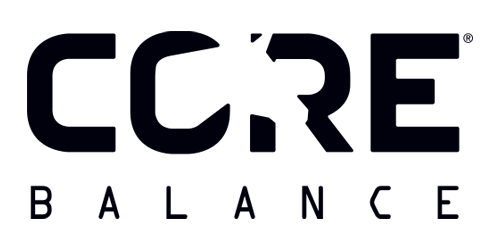How to Keep Your Horse Hydrated
Richard G. Godbee, Ph.D., PAS, Dipl ACAS-Nutrition
Core Balance LLC
Summer is the prime time of year for most of us to ride our horses, and it is also when most competitions are held. While warm weather encourages us to spend extra time in the saddle, it also demands extra caution in caring for our horses and ensuring they receive adequate water. A lack of water has a profound impact on the well-being of a horse, more than any other nutrient. While the body can lose nearly all its fat and over half its protein and still survive, losing just 1/10th of body water can result in serious consequences.
How Much Water Does My Horse Need to Stay Hydrated?
A mature horse (about 1,100 lbs.) needs 8 to 12 gallons of water each day just to maintain its basic functions. This requirement can be significantly altered by factors such as temperature, humidity, type of feed, horse health, and type of activity. For example, exercise in hot, humid weather may increase the water requirement by as much as 300-400%. Moderate work can increase water needs by 60-80%, and hard work as much as 200%.
How Exercise and Competition Affect Equine Hydration
Exercise greatly influences water needs. Over 80% of the energy a horse uses results in heat production, which must be dissipated for the horse to function well. If the horse can't get rid of this heat, its body temperature would rise to dangerous levels, compromising performance and health. Similar to humans, horses primarily cool themselves through sweating and respiration. Sweating and the respiratory tract account for about 80% of evaporative cooling. In order to stay hydrated during competitions, water intake must equal water lost in the cooling process.
The Equine Heat Index
The Equine Heat Index is a simple formula meant to indicate how effectively a horse can cool itself. To find the heat index for your region use the following formula:
Air temp (Farenheit) + Relative Humidity% = Heat Index
Example: an air temperature of 86° in a climate with a relative humidity of 65% has a heat index score of 151 (86+65=151)
To understand what the heat index means for your horse’s ability to maintain a comfortable and safe internal temperature through cooling, use the following chart:
|
Heat Index Score |
Impact on Cooling |
|---|---|
|
Less than 130 |
No negative effect on cooling |
|
Greater than 130 |
Cooling efficiency decreases slightly |
|
Greater than 150 |
Cooling efficiency greatly decreases, use caution. |
|
Greater than 170 |
Cooling efficiency significantly decreases, minimal exertion only |
|
Greater than 180 |
Cooling not effective, no forced exercise should be done |
It is worth noting that every horse is different, and that a horse acclimated to a hotter, more humid climate will tolerate a higher heat index better than one that is not. It’s particularly important to keep that in mind when traveling to different climates for competitions or riding.
Best Electrolytes for Horses
Sweating plays a critical role in cooling but it also results in the loss of important electrolytes, such as sodium, chloride, potassium, calcium, and magnesium. It’s important that these vital minerals are replenished in order to maintain proper equine hydration. Horse sweat contains significantly more potassium than human sweat, making human electrolyte products unsuitable for horses. Providing your horses with high quality equine electrolytes prior to exercise can help avoid fatigue, abnormal gastrointestinal motility, poor performance, and thermoregulation issues. Look for electrolyte solutions that are low in sugar to help support electrolyte absorption without impacting insulin response. Core Renew is formulated with high quality ingredients to provide fast, convenient replacement of critical electrolytes lost in sweat caused by heavy exercise, training, competition, and trailering.
How to Know if a Horse is Dehydrated
Dehydration from excessive sweating and reduced water intake can lead to reduced performance and potentially life-threatening situations. In addition to taking precautionary steps such as avoiding exercise when the heat index is high and supplementing electrolytes, it’s important to watch your horse for signs of dehydration so you can intervene before the situation escalates. Signs of dehydration include slow capillary refill time, decreased skin elasticity, sunken eyes, lack of saliva, dry feces, decreased urination, increased hematocrit, and increased plasma protein concentration.
Tips for Keeping your Horse Hydrated
To minimize dehydration risks and ensure your horse stays hydrated:
- Provide free access to water.
- Ensure water is clean and palatable.
- Clean buckets and troughs regularly.
- Understand how different types of feed affect water intake.
- Provide loose salt to encourage water consumption and maintain electrolyte balance.
- Use electrolytes formulated for horses, especially during hot weather and heavy sweating periods.
- Monitor your horse’s hydration status regularly.
Conclusion
Providing sufficient water, using electrolytes wisely, and being sensible during hot weather will optimize your horse's performance while ensuring their safety. For the best electrolytes for horses, consider products specifically formulated to meet their unique needs such as Core Renew. If you are concerned about your horse’s health or they are displaying signs of dehydration that aren’t resolved with proper care, consult your equine veterinarian.

